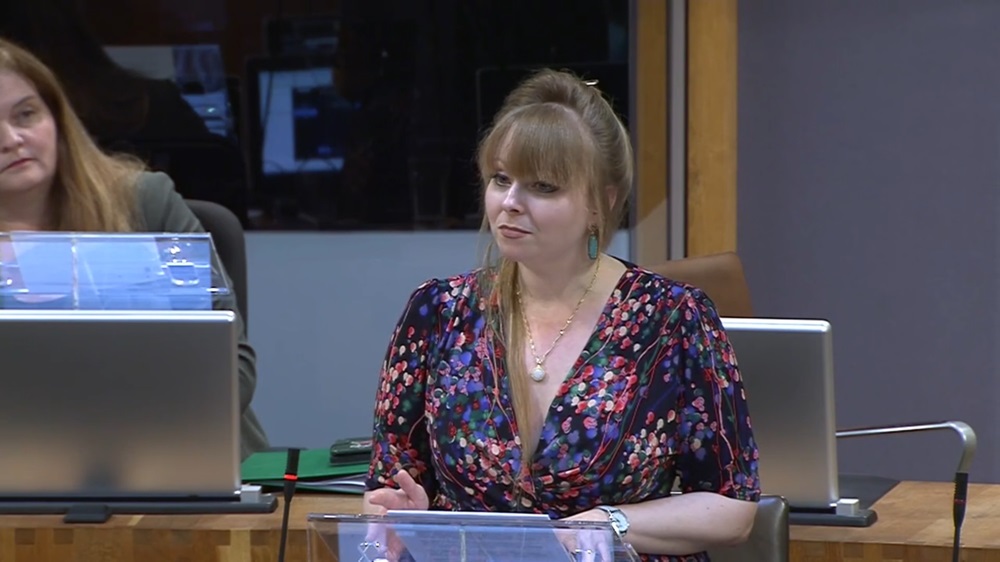Delyth Jewell: Championing Women’s Health in the Senedd
In a powerful and impassioned debate at the Senedd, Delyth Jewell, a prominent member of Plaid Cymru, has brought to the forefront the pressing issues surrounding women’s health. Her remarks resonate with many women who have faced the daunting challenge of navigating a healthcare system that often trivializes their pain and suffering. As she eloquently stated, “The pain suffered by women in their health care can be physical, it can also be psychological,” highlighting the multifaceted nature of women’s health issues.
Normalization of Pain
Jewell’s advocacy stems from a deep concern about the normalization of physical and emotional pain experienced by women. She emphasized that it is unacceptable for women’s suffering to be treated as a mere part of life. This normalization not only affects women’s willingness to seek treatment but also contributes to a culture where their health concerns are often dismissed. The expectation that women should simply "grin and bear it" when faced with discomfort from procedures such as smear tests and coil fittings is a narrative that needs to change.
The Call for Legal Obligations
In her motion, Jewell called for the establishment of legal obligations regarding women’s health, urging the Welsh Government to strengthen expectations for health boards in the quality statement for women’s and girls’ health. She argued that the current system fails to adequately address the unique health challenges faced by women, particularly in areas such as gynaecological health. By placing these obligations on a legal footing, Jewell aims to ensure that women’s health is prioritized and that their voices are heard in the healthcare system.
Stubbornly Grim Statistics
Jewell’s concerns are backed by alarming statistics regarding gynaecological cancers, which she described as “stubbornly grim.” Many women in Wales face significant barriers to receiving timely and appropriate care. A study revealed that a quarter of women visited their GP three or more times before being referred for tests, and a third waited at least three months for a diagnosis. This delay in care can have devastating consequences, underscoring the urgent need for reform in how women’s health issues are addressed.
The Impact of Gaslighting
One of the most troubling aspects of women’s healthcare, as highlighted by Jewell, is the phenomenon of gaslighting. Women often find themselves being told not to worry or to wait and see if their symptoms worsen, leading to a sense of doubt about their own experiences. This dismissal of pain not only affects their mental health but also contributes to a culture where women’s health concerns are not taken seriously. Jewell’s call for healthcare providers to collect patient feedback, particularly in gynaecological and mental health services, aims to combat this issue and ensure that women’s experiences are validated.
The Need for Comprehensive Health Plans
The lack of a dedicated women and girls’ health plan in Wales has been identified as a significant gap in the healthcare system. Jewell pointed to successful models in countries like Norway, Sweden, Canada, and Scotland, where comprehensive health plans have been implemented to address women’s unique health needs. The absence of such a plan in Wales is a missed opportunity to improve health outcomes for women and to foster a culture of understanding and support.
Voices from the Senedd
The debate on women’s health saw contributions from various members of the Senedd, each echoing Jewell’s concerns. Labour’s Carolyn Thomas emphasized the need for cultural change within the health service, while Plaid Cymru’s Sioned Williams highlighted the importance of improving menopause services. Conservative Natasha Asghar raised critical points about the long waiting times for breast cancer reconstructive surgery, which can severely impact women’s mental health.
A Step Towards Change
The Welsh Government’s response to the debate was cautiously optimistic. Sarah Murphy, the mental health minister, acknowledged the importance of women’s health and committed to bringing forward a plan by December 10. While she disagreed with the need for legislative change, her support for the principles underlying Jewell’s motion indicates a willingness to address the issues raised.
Conclusion
Delyth Jewell’s passionate advocacy for women’s health in the Senedd has sparked an important conversation about the normalization of pain and the systemic failures within the healthcare system. Her call for legal obligations and comprehensive health plans represents a crucial step towards ensuring that women’s health is prioritized and that their voices are heard. As the debate continues, it is clear that the fight for women’s health rights is far from over, but with leaders like Jewell at the forefront, there is hope for meaningful change.
Support Our Nation Today
For the price of a cup of coffee a month, you can help us create an independent, not-for-profit national news service for the people of Wales, by the people of Wales. Your support is vital in amplifying the voices that matter.
